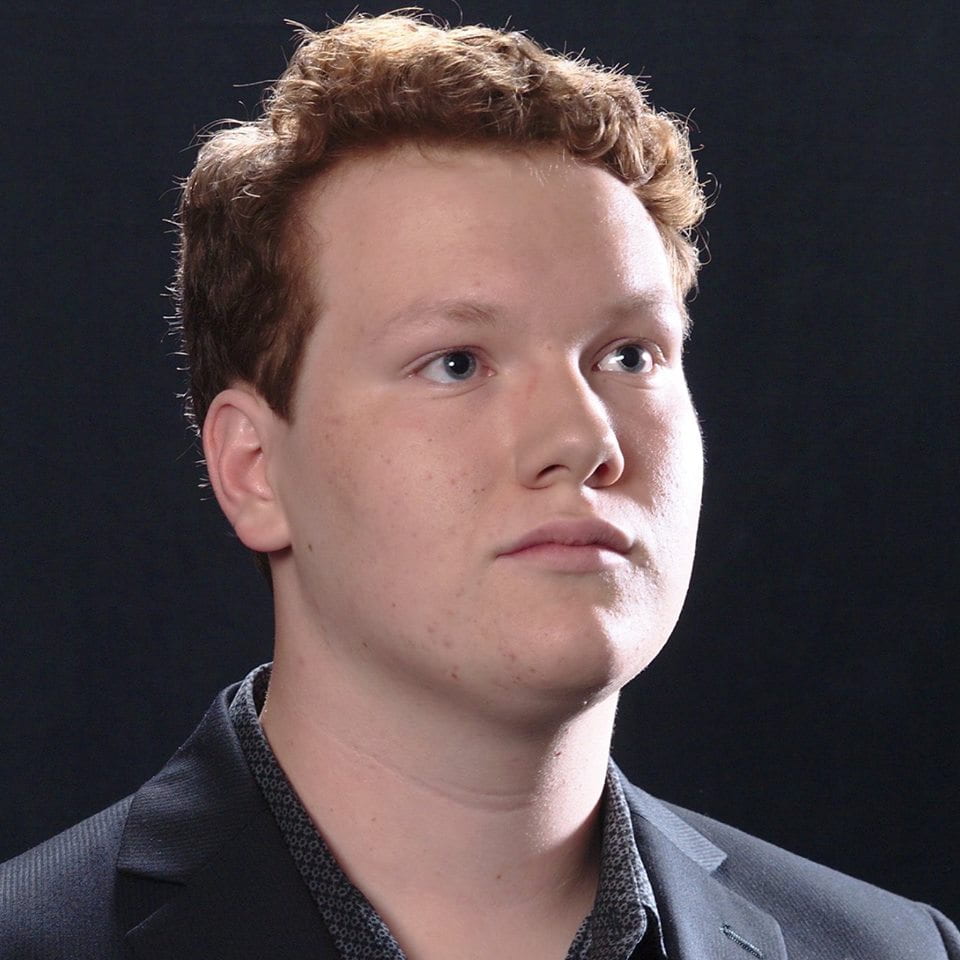BY KIT HAIST – STAFF WRITER
What’s the first word you think of when you hear the term “classical music?” Boring? Esoteric? Snobbish? Or do you think first of names of composers like Beethoven and Bach? A discussion with junior Sebastian Duncan ’19, provides a new perspective on the genre.
Duncan’s beginning in music immediately discourages any generalizations about composers. “I started off doing covers of Lincoln Park Songs,” Duncan said about how he began to learn music. “That type of playing taught me a lot about chords and song progressions and also about how to create my own songs.”
The public might believe artists craft compositions after laborious meditation over an instrument. Duncan finds the exact opposite. “I never have ideas when I’m trying to force an idea,” he remarked. “I usually don’t come up with something if I’m in the practice room.”
Others might think music arrives to composers as a shock of harmonic insight at some poetic moment. While Duncan enjoys hiking and finding inspiration in nature, his ideas sometimes come at random, simple moments. “I also wrote a piece that started off because I was harmonizing to the sound of my electric toothbrush.”
The American String Quartet recently workshopped one of Duncan’s pieces in development since last September. “It gave me a chance to think about what kind of techniques I want to change in this piece. Is it too long? what’s its structure like? After that, I changed a lot about the quartet because of the feedback I got,” Duncan said, describing the workshop’s purpose.
Most importantly, Duncan was excited about finally getting to hear the piece live. “What this workshop was, was an opportunity for me to hear it live, and not only live but hear it by incredibly talented and experienced musicians,” he said.
Duncan has been involved with music on campus in a variety of ways. He studied orchestration and film scoring at Centre last summer, receiving an honorary mention at the Indie Gathering International Film Festival. He has completed arrangements for Centre Singers, the Wind Ensemble, and is “working on things for orchestra at the moment.”
While Duncan is productive, he finds overworking can cause writer’s block: “A challenge I have with it sometimes is that I can get a little too lost in it and become unproductive.” He found a solution in “composing less and doing other things more.” He added that it is extremely useful to maintain “a varied lifestyle.”
Variety also extends to Duncan’s musical tastes. “Pop and Rock music has a lot more complex properties behind it than people generally describe them with,” Duncan said. “Although a lot of what I’m doing is rooted in classical music, I find that the things I discover through other types of music are just as important.”
Duncan explained how the contemporary classical world is not isolated from other forms of music and media. “With a lot of modern composers, you see a huge number of jazz, electronic,
pop and rock influences,” he explained. “I think one of the best ways that composers reach wider audiences, is by writing music for other types of media, like film.”
For a listener new to classical music, Duncan advised against “trying to force yourself to like something just because you’ve heard that it’s sophisticated or that it’s good.” Duncan explained how the “classics” of classical music may be great, “like Beethoven, Bach, and Brahms,”—but “if that isn’t for you, so be it. Find something you enjoy.”
Duncan also has advice for aspiring composers. “Just get started. Don’t be intimidated by anything.” While the statement is simple, it’s advice anyone hesitant to begin something they aspire toward should follow.

